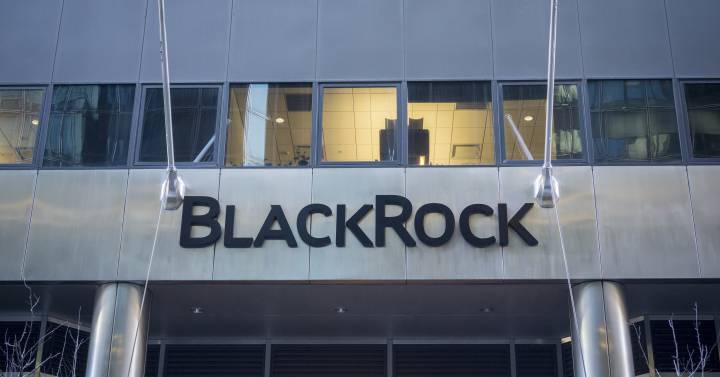The European Commission wants to put an end to the conflicts of interest of companies and institutions that go to tenders for jobs that help MEPs in the preparation of community regulations. Brussels has got down to work and has updated its definition of conflict of interest, in order to be able to reject bids that may give rise to doubts in contract tenders.
The origin of this regulatory change has its own name: BlackRock. The largest investment fund manager in the world, with a volume of assets under management of 10 trillion dollars (8.73 trillion euros), was the winner of a contract to prepare a report on the exposure of the financial sector to risks Environmental, Social and Governance (ESG) to help MEPs integrate sustainability into European prudential banking regulations. The document, which was highly critical of the sector, provoked an angry reaction from the European Ombudsman for BlackRock’s connection with financial institutions and for its investments in fossil assets. Although it is true that since 2020 it has been committed to environmental sustainability, the manager amassed investments in brown industries amounting to 85,000 million dollars last year.
BlackRock has a high presence within the shareholding of the financial sector. In the Spanish case, it holds 5.426% of the capital of Santander, 5.917% of BBVA, 3.211% of CaixaBank and 4.991% of Sabadell, which at market value reach a value of around 5,100 million euros. But it is also present in the shareholding of Société Générale, Deutsche Bank or BNP Paribas.
The European Ombudsman, Emily O’Reilly, vehemently criticized that the Community Executive “should have been more vigilant in verifying” that the fund manager “was not subject to a conflict of interest that could negatively affect the performance of the contract”.
Furthermore, he warned that BlackRock’s offer was “exceptionally low”, given that it bid for the job for 280,000 euros, even though the European Commission’s budget was 550,000 euros. A point that the ombudsman commented that “could be perceived as an attempt to exert influence over an investment area of relevance to their clients.”
In the report carried out by BlackRock’s Financial Markets Advisory unit, released in August last year, it was ensured that European banks were responding slowly in terms of sustainability and that they only had a limited understanding of their exposure to risks. environmental, social and governance-related. BlackRock further urged lawmakers to take further action and “accelerate the pace of implementation to achieve effective integration of ESG into risk management, prudential supervision, and business strategies and investment policies.”
The criticism received has led Brussels to include in the proposal for a financial regulation an update of the definition of conflict of interest. According to the text, which must be approved by Parliament and by the Member States, “all bidders must submit a declaration on their honor confirming that they have no professional conflict of interest, and provide the relevant information when requested”. In addition, the European Commission will be required to assess the existence of such conflicts of interest when they are declared by the bidders or on the basis of additional information. If the existence of this problem is verified, the award will be rejected.
BlackRock puts the brakes on environmentalism
Change of criteria. The largest asset manager has turned against the environmental group. BlackRock has recently acknowledged that the war in Ukraine and the veto of Russian oil and gas by the US, UK and the European Union have meant that it will not pass most shareholder resolutions on climate change this year. year on boards because they have become too extreme or too prescriptive.
Glasgow goals.
The fund manager will continue to require the companies in which it invests to commit to setting long- and short-term targets to reduce emissions. However, their lack of support for reducing emissions at shareholders’ meetings will discourage decarbonization, they point out in the market.

